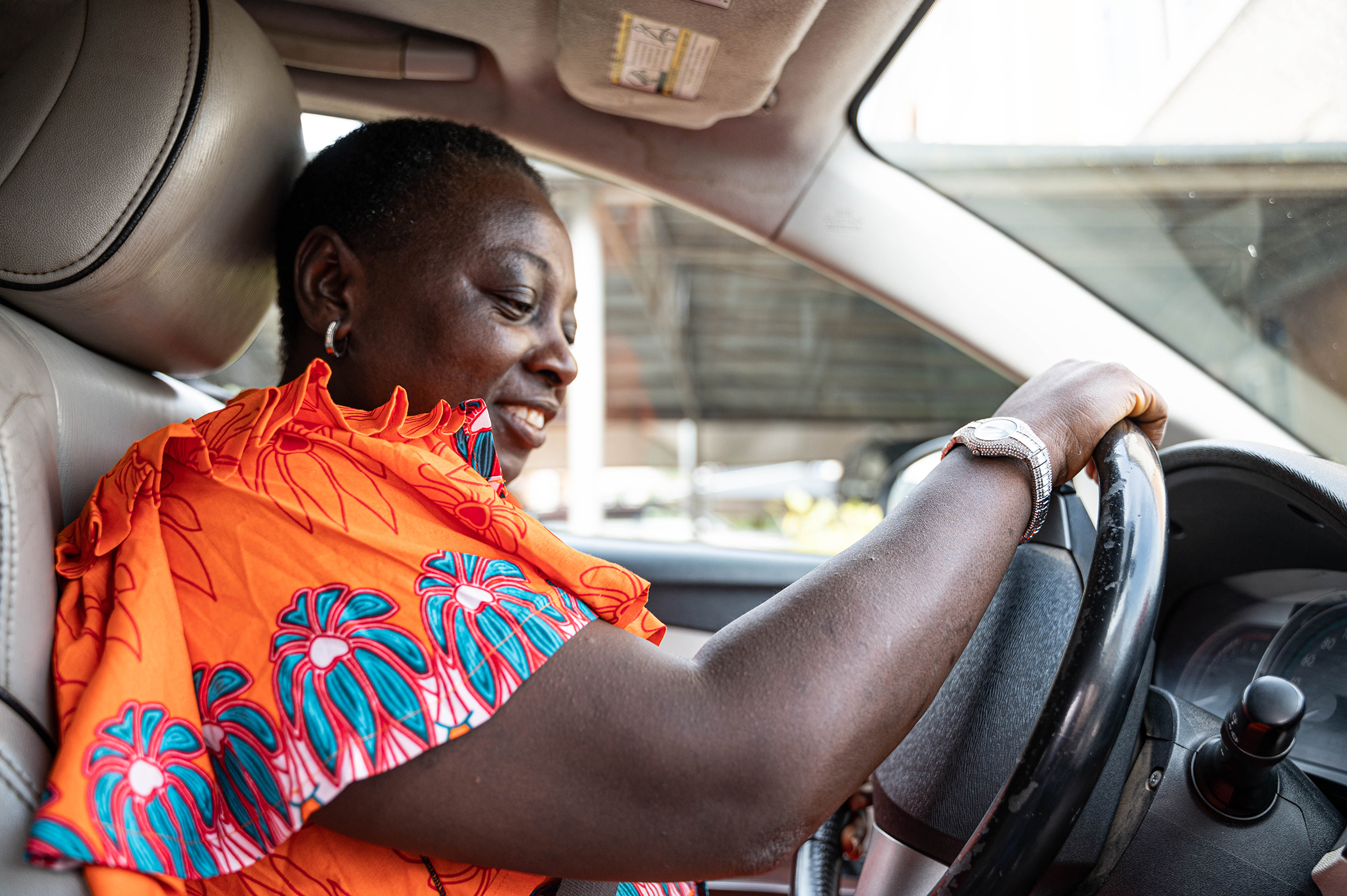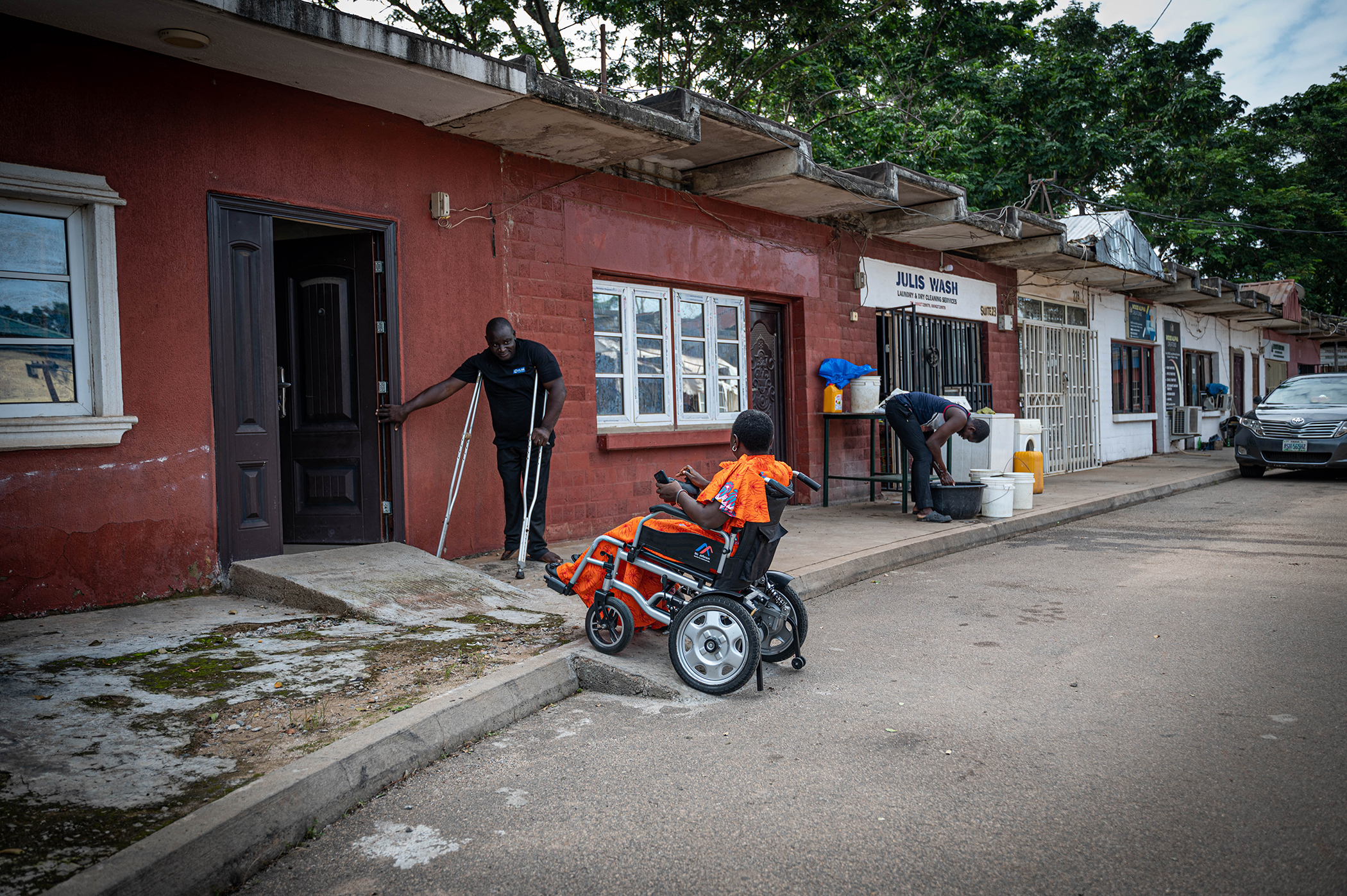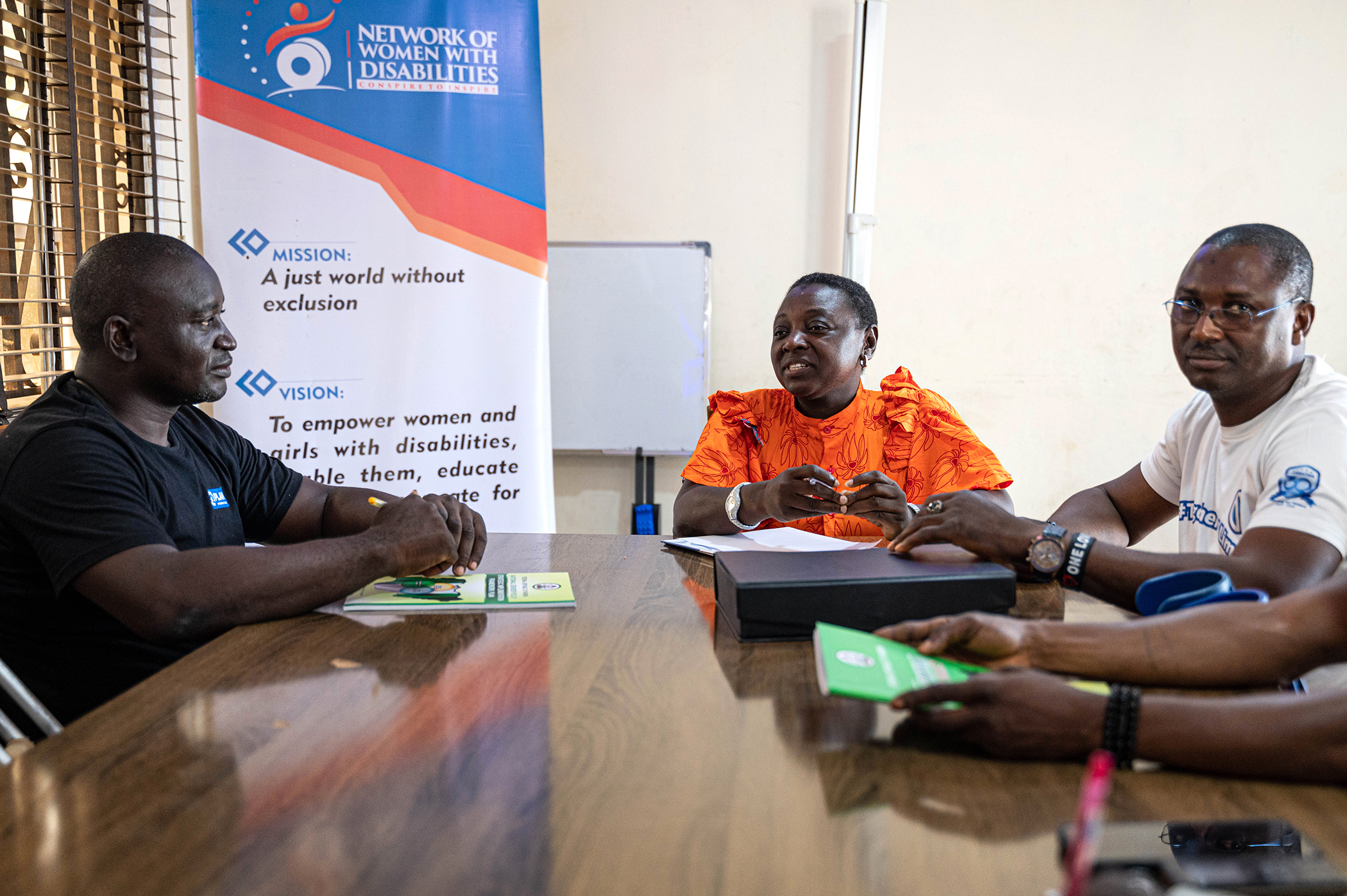When Lois Auta had a high fever as a toddler, her mother rushed her to the hospital, knowing that she was sick — but never thinking the fever would alter the course of their lives.
Within hours of arriving at the hospital, Auta’s situation worsened dramatically.
"When I stood up, I fell on the bed — three times. [My mom said:] 'Lois are you okay?' This was a child of 2 years that could walk and run at the time," Auta told Global Citizen. "Since that day, I could not walk on my own again."
Auta was diagnosed with polio, a highly infectious disease that invades the body's nervous system and can cause paralysis within hours. While there is no cure for polio, the disease is preventable through vaccines, typically administered in multiple doses from ages 2 to 23 months. However, some children like Auta are not vaccinated or miss doses, increasing their risk.
"My mother was educated and knew the importance of immunizations, but she was busy and wasn't able to take me to two vaccinations," Auta told Global Citizen.
Globally, numerous studies have proven a positive correlation between maternal education and the uptake of children's vaccination rates. Children whose mothers received secondary education or higher have a 2.3 times greater likelihood of being vaccinated than children whose mothers were uneducated.
Polio, which mainly affects children under 5, results in irreversible paralysis in 1 out of every 200 infections. As Auta experienced paralysis in her legs and began using a walker, her parents were advised by friends and relatives to "concentrate on [their] children without disabilities — this one does not have a future," said Auta, who is one of 11 children.
 Lois Auta works from home in Abuja, Nigeria in August 2023.
Lois Auta works from home in Abuja, Nigeria in August 2023.
But Auta's mother refused, encouraging her to attend school.
"I realized that I was walking differently from other children and I refused to get out of the house. I would say: 'No, I'm not going to school. I'm shy. I don't want people to see me the way I walk,'" Auta said. "I liked being alone. I liked being in a safe place where nobody disturbed me."
But Auta's mom was persistent.
"She kept praying for me. She kept pleading with me: 'Please don't do this to me. I want you to grow. I want you to be educated. I want you to be a great woman in the future.'"
Auta began leaving the house to play with other children in the neighborhood and built up her confidence to enroll in school. There, she faced bullying as others taunted her disability. It was only when Auta was a university student in her thirties that she began making friends.
Today, she credits her sociable nature for enabling her to build relationships with disability advocates globally and tirelessly pursue health advocacy in Nigeria. As the founder of the Cedar Seed Foundation and the Network of Women with Disabilities, Auta fiercely champions disability inclusion, economic empowerment, and inclusive health for those with disabilities, particularly women and girls.
 Lois Auta is photographed on the way to work in Abuja, Nigeria in August 2023. Auta was diagnosed with polio when she was a young child. The highly infectious disease invades the body's nervous system and can cause paralysis.
Lois Auta is photographed on the way to work in Abuja, Nigeria in August 2023. Auta was diagnosed with polio when she was a young child. The highly infectious disease invades the body's nervous system and can cause paralysis.
Whether lobbying local legislators in Abuja or sharing her passion for inclusion while in the US, where she met the Obamas, Auta has spent the last decade at the forefront of disability advocacy.
She was a member of the technical committee that reviewed the Discrimination Against Persons with Disabilities Act before it was passed in 2019 in Nigeria. The law prohibits discrimination based on disability, outlines a five-year period for modifying public buildings to make them accessible, and imposes fines and other penalties for those who contravene the law.
"It's a huge problem trying to navigate from point A to point B without stress because [I estimate] 99% of Nigerian infrastructure and buildings are inaccessible," Auta said.
When advocating, Auta commonly cannot access policymakers' and leaders’ offices due to a lack of ramps and elevators. Her hosts either change the venue, meet with her in the reception area, or look for three or four strong individuals to carry Auta up the stairs in her wheelchair.
"I hate to be carried because it's derogatory. I like being independent,” she shared.
For a recent meeting at the Federal Development Capital Authority, Auta was invited to share her perspectives regarding the inclusion of vulnerable people, such as those with disabilities, in a national health insurance bill. Upon arrival, she found out the meeting was on the second floor and inaccessible. While she considered leaving, the event organizers insisted she be carried in her wheelchair to the meeting location.
"I was the only person with a disability there, so if I leave, my voice will not be heard. Our issues [as people with disabilities] will not be captured," Auta said. “I see my disability as an opportunity to change the world.”
She therefore agreed to be carried up to the meeting.
As Auta continues to face these barriers and works to dismantle them, she is passionate about changing how society perceives people with disabilities.
"I'm a woman with 99% abilities. The only [remaining] 1% is polio that affected my legs — and it only affected my legs. I have my brain to think," Auta told Global Citizen. "Polio can never stop me … Polio can never be a barrier. Polio can never be a challenge. Polio can never be a difficult thing for me to overcome."
 As the founder of the Cedar Seed Foundation and the Network of Women with Disabilities, Lois Auta fiercely champions disability inclusion, economic empowerment, and inclusive health for those with disabilities, particularly women and girls.
As the founder of the Cedar Seed Foundation and the Network of Women with Disabilities, Lois Auta fiercely champions disability inclusion, economic empowerment, and inclusive health for those with disabilities, particularly women and girls.
The World's Best Shot is a profile series dedicated to sharing the stories of vaccine activists around the world.
Disclosure: This series was made possible with funding from the Bill and Melinda Gates Foundation. Each piece was produced with full editorial independence.


